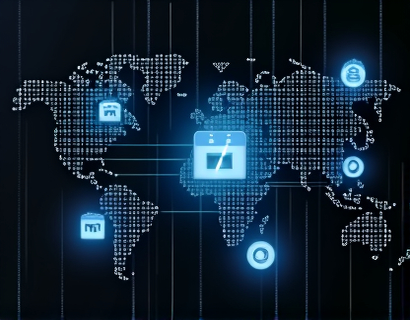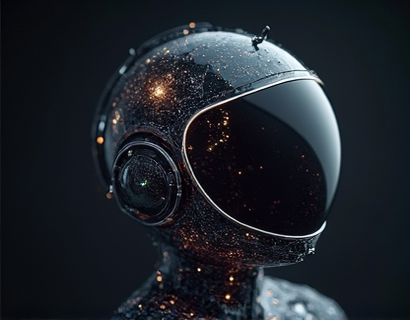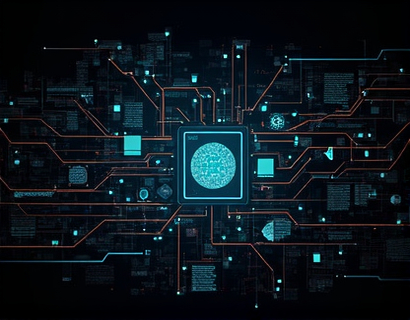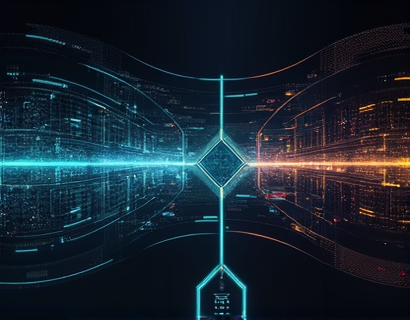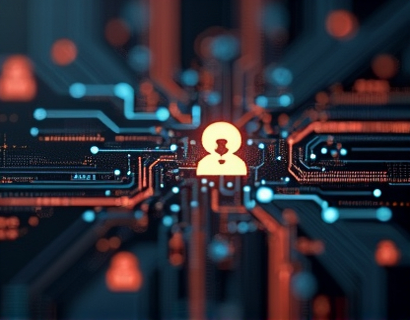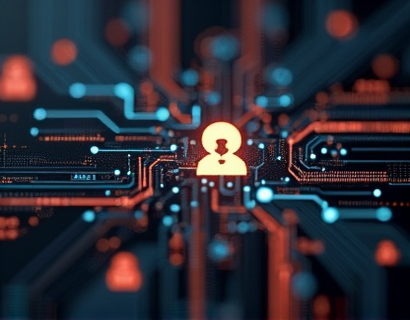The Synergy of Crypto and AI: Revolutionizing App Ecosystems for Enhanced Digital Engagement
The intersection of cryptocurrency and artificial intelligence (AI) is giving rise to a new era of digital interactions, where app ecosystems are being transformed to offer unparalleled user experiences. This synergy is not just about combining two cutting-edge technologies but about creating intelligent systems that leverage blockchain's transparency, security, and decentralization, while AI's learning and adaptive capabilities enhance user engagement and drive growth in the tech sector.
Understanding the Basics: Crypto and AI in App Ecosystems
To grasp the transformative power of crypto and AI in app ecosystems, it's essential to understand the fundamental roles each plays. Cryptocurrency, built on blockchain technology, provides a decentralized and secure method for transactions, eliminating the need for intermediaries. This not only reduces costs but also enhances trust and transparency in digital interactions.
AI, on the other hand, brings intelligence and adaptability to applications. Through machine learning algorithms, AI can analyze vast amounts of data to predict user behavior, personalize content, and optimize app performance. When integrated with blockchain, AI can operate on a more secure and transparent foundation, further enhancing user trust and satisfaction.
The Role of Blockchain in Enhancing Trust and Security
Blockchain technology is the backbone of cryptocurrency, but its applications extend far beyond digital currencies. In app ecosystems, blockchain ensures that transactions are immutable and verifiable, reducing the risk of fraud and enhancing user confidence. Smart contracts, self-executing contracts with the terms directly written into code, automate and enforce agreements without the need for intermediaries, making processes more efficient and transparent.
For instance, in decentralized finance (DeFi) applications, blockchain ensures that financial transactions are secure, traceable, and accessible to anyone with an internet connection. This level of transparency and security is crucial for building trust in digital ecosystems, especially as more users adopt crypto-based services.
AI-Driven Personalization and User Engagement
AI's ability to analyze user data and behavior patterns enables app developers to create highly personalized experiences. By understanding user preferences and habits, AI can tailor content, recommendations, and interactions to individual needs, increasing user engagement and satisfaction. In the context of app ecosystems, this means that users receive a more relevant and seamless experience, fostering loyalty and retention.
For example, a music streaming app can use AI to curate playlists based on a user's listening history and preferences, while also suggesting new artists and songs that align with their tastes. This level of personalization not only enhances the user experience but also keeps users engaged for longer periods, driving higher usage rates and reducing churn.
Enhancing App Performance through AI Optimization
AI is not only about personalization; it also plays a critical role in optimizing app performance. Machine learning algorithms can identify and resolve issues in real-time, predict server load, and optimize resource allocation. This ensures that apps run smoothly and efficiently, even under high traffic conditions.
For instance, AI can monitor user interactions and system performance, identifying bottlenecks and suggesting improvements. This proactive approach to performance optimization not only enhances the user experience but also reduces operational costs for app developers and providers.
Decentralized Identity and Privacy Protection
One of the significant challenges in digital ecosystems is user privacy and data security. Blockchain and AI can work together to address these concerns by implementing decentralized identity solutions. These solutions allow users to control their personal data and decide who can access it, enhancing privacy and reducing the risk of data breaches.
AI can further enhance privacy protection by detecting and preventing unauthorized access and malicious activities. Machine learning algorithms can analyze patterns to identify potential threats and take proactive measures to safeguard user data. This combination of technologies ensures that users can enjoy a secure and private digital experience.
Fostering Innovation and Growth through Crypto and AI
The integration of crypto and AI in app ecosystems is not just about improving existing services; it's about fostering innovation and driving growth in the tech sector. By leveraging blockchain's decentralized nature and AI's intelligent capabilities, developers can create new types of applications and services that were previously unimaginable.
For example, decentralized marketplaces can use AI to match buyers and sellers more efficiently, while ensuring transparent and secure transactions. Similarly, AI-powered financial tools can offer innovative solutions in areas like lending, insurance, and investment, all built on a secure and transparent blockchain foundation.
These innovations not only open up new market opportunities but also attract a broader range of users, including those who are skeptical of traditional digital platforms. As more users adopt and benefit from these advanced technologies, the overall growth and adoption of crypto and AI in app ecosystems will continue to accelerate.
Challenges and Considerations
While the potential of crypto and AI in app ecosystems is vast, there are several challenges and considerations that need to be addressed. One of the primary concerns is the regulatory landscape. As crypto and AI technologies evolve, regulatory frameworks must adapt to ensure consumer protection and prevent misuse.
Another challenge is the technical complexity involved in integrating these technologies. Developers need to have a solid understanding of both blockchain and AI to create robust and secure applications. Additionally, there is a need for standardization to ensure interoperability between different systems and platforms.
Education and awareness are also crucial. Users must be informed about the benefits and risks associated with crypto and AI technologies to make informed decisions. This includes understanding how their data is used and protected, as well as the potential financial implications of adopting these technologies.
Conclusion: The Future of Digital Interactions
The convergence of cryptocurrency and artificial intelligence is reshaping app ecosystems in profound ways, offering enhanced security, personalization, and performance. As these technologies continue to evolve, they will drive innovation and growth in the tech sector, creating new opportunities and experiences for users worldwide. By embracing this synergy, developers and users alike can look forward to a future where digital interactions are more secure, efficient, and tailored to individual needs.














